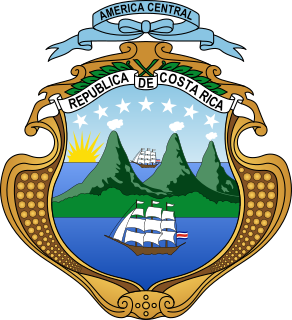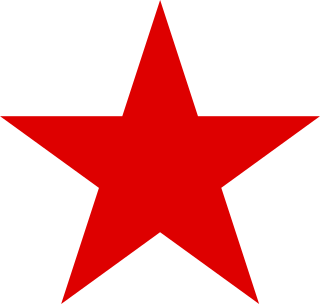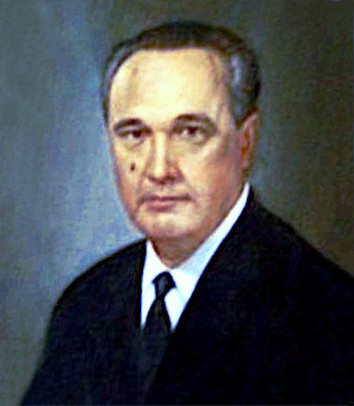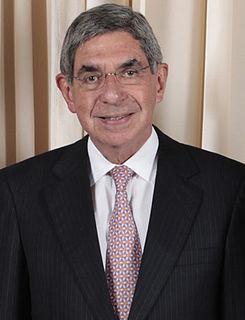| ||||||||||||||||||||
| ||||||||||||||||||||
In green provinces won by Figueres | ||||||||||||||||||||
| ||||||||||||||||||||
 |
|---|
| This article is part of a series on the politics and government of Costa Rica |
Legislature |
|
General elections were held in Costa Rica on 1 February 1970. [1] José Figueres Ferrer of the National Liberation Party won the presidential election, whilst his party also won the parliamentary election. Voter turnout was 83.3%. [2]

Costa Rica, officially the Republic of Costa Rica, is a country in Central America, bordered by Nicaragua to the north, the Caribbean Sea to the northeast, Panama to the southeast, the Pacific Ocean to the southwest, and Ecuador to the south of Cocos Island. It has a population of around 5 million in a land area of 51,060 square kilometers. An estimated 333,980 people live in the capital and largest city, San José with around 2 million people in the surrounding metropolitan area.

José María Hipólito Figueres Ferrer served as President of Costa Rica on three occasions: 1948–1949, 1953–1958 and 1970–1974. During his first term in office he abolished the country's army, nationalized its banking sector, and granted women and Afrodescendents the right to vote, as well as access to Costarrican nationality to people of African descent. He was a good friend of the Governor of Puerto Rico, Luis Muñoz Marín, praising his political achievements in one of his essays.

The National Liberation Party, nicknamed the verdiblancos, is a political party in Costa Rica. The party is a member of the Socialist International.
Contents
On 25 June 1969 the Legislative Assembly of Costa Rica reform the Constitution outlawing presidential reelection, but as any legal reform is retroactive, all previous presidents could be candidates one more time. [3] Two former presidents José Figueres Ferrer and Mario Echandi Jiménez were the two main candidates in the election.

The Legislative Assembly is the unicameral legislative branch of the government of Costa Rica. The national congress building is located in the city capital, San José, specifically in El Carmen District in San José Canton.

The Constitution of Costa Rica is the supreme law of Costa Rica. At the end of the 1948 Costa Rican Civil War, José Figueres Ferrer oversaw the Costa Rican Constitutional Assembly, which drafted the document. It was approved on 1949 November 7. Several older constitutions had been in effect starting from 1812, with the most recent former constitution ratified in 1871. The Costa Rican Constitution is remarkable in that it abolished the Costa Rican military, making it the first nation to do so by law. Another unusual clause include an amendment asserting the right to live in a healthy natural environment.

Mario José Echandi Jiménez was the 33rd President of Costa Rica, serving from 1958 to 1962.
Echandi was nominated by then ruling party National Unification, a right-wing conservative party made out of the merge of the Republicans (Calderonistas) and the National Union (Ulatistas). But the union was starting to break and Ulate presented a separated list for Congress with his Party (unsuccessfully). [3] In the main opposition force and by then dominant-party PLN, the nominee was the historical leader and twice president before José Figueres. Figueres was selected after a primary election (or National Convention as they're known in Costa Rica) in which he defeated then Congressman and former Secretary General of the party, Rodrigo Carazo. The convention was particularly harsh and after the results Figueres did not included any of Carazo supporters in power positions (as was a traditional courtesy), something that future president Carazo resented and made him eventually leave the party. [3]
The National Unification Party was a political party in Costa Rica from 1966 to 1978. It was founded by Rafael Ángel Calderón Guardia and Otilio Ulate Blanco, and espoused social welfare and a free market.

The National Republican Party was a political party in Costa Rica.

Rafael Ángel Calderón Guardia was a Costa Rican doctor and politician, who served as President from 1940 to 1944.
But National Unification’s forces weren’t in better conditions. Ulate did not endorsed Echandi and left the coalition. [3] Others that left were Virgilio Calvo and Mariano Zúñiga from the calderonist faction that made their own new party; National Front (aka “Third Front”). Ulate promised them the support of this party, but PUN’s General Assembly did not follow his lead and endorsed Echandi’s candidature. The group had minimal impact in the election anyway. [3]
Other minor parties were the Christian Democratic Party led by physician Jorge Arturo Monge Zamora and Socialist Action Party led by former PLN member Marcial Aguiluz Orellana and historical Communist leader Manuel Mora (Communism was still illegal at the time, but the prohibition was flexible on non-explicitly Marxist parties, besides several leaders were already questioning the antidemocratic nature of the measure and calling for it lifting, among them Figueres himself).
Manuel Mora Valverde was a communist and labor leader in Costa Rica. He was born in San José and helped to found the Workers and Farmers Party in 1931. For his contributions to the labor movement and to the institution of a welfare state, Mora was awarded the title Benemérito de la Patria by the Legislative Assembly.

In political and social sciences, communism is the philosophical, social, political, and economic ideology and movement whose ultimate goal is the establishment of the communist society, which is a socioeconomic order structured upon the common ownership of the means of production and the absence of social classes, money, and the state.

Marxism is a theory and method of working class self-emancipation. As a theory, it relies on a method of socioeconomic analysis that views class relations and social conflict using a materialist interpretation of historical development and takes a dialectical view of social transformation. It originates from the works of 19th-century German philosophers Karl Marx and Friedrich Engels.
Figueres won by a very broad margin over Echandi, 54% over 41% and achieving majority in Parliament. Socialists and Christian Democrats also achieved representation.














